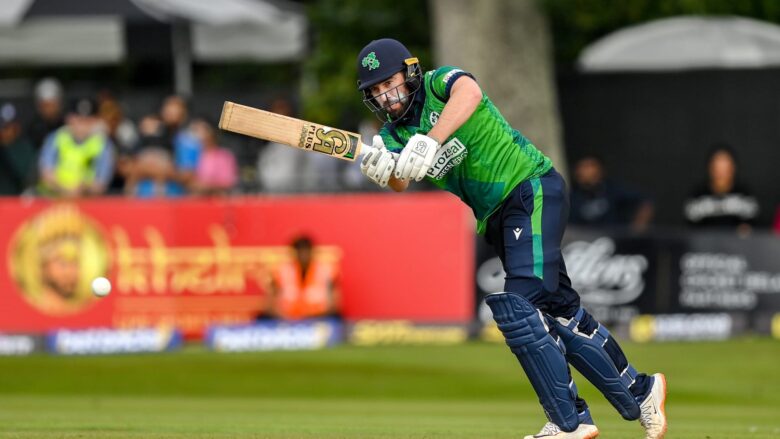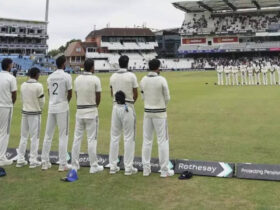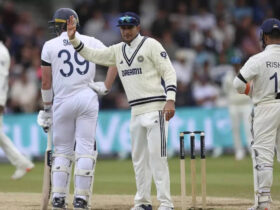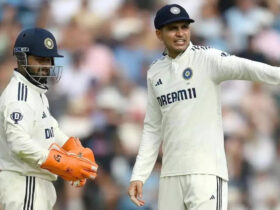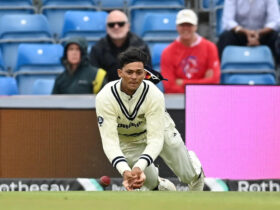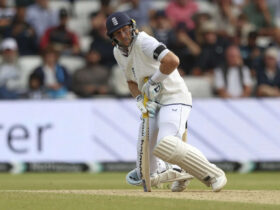Ireland’s Balbirnie Fined for Violating ICC Code of Conduct
Andrew Balbirnie, a prominent player from the Ireland cricket team, has been penalized with a fine amounting to 25% of his match fee. This action comes in response to his violation of Level 1 of the ICC Code of Conduct during the second T20I against Afghanistan, which took place in Sharjah on Sunday.
Balbirnie was found guilty of contravening Article 2.8 of the ICC Code of Conduct for Players and Player Support Personnel. This article pertains to “expressing dissent towards an Umpire’s decision during an International Match.”
Alongside the fine, Balbirnie’s disciplinary record has been marked with one demerit point. This is his first offence within a 24-month period.
The incident transpired during the 16th over of Ireland’s innings. Balbirnie expressed dissent after being declared leg before wicket, indicating to his gloves and asserting to the umpire that the ball had made contact with his gloves before hitting his pads.
Balbirnie acknowledged the offence and agreed to the sanction proposed by David Boon, a member of the Emirates ICC Elite Panel of Match Referees. Consequently, there was no requirement for a formal hearing.
The charges were brought by on-field umpires Bismillah Jan Shinwari and Izatullah Safi, third umpire Ahmed Shah Pakteen, and fourth umpire Ahmed Shah Durrani.
Level 1 breaches entail a minimum penalty of an official reprimand, a maximum penalty of 50% of a player’s match fee, and one or two demerit points.
EDITOR’S NOTES:
*When a player accumulates four or more demerit points within a 24-month period, these are converted into suspension points, leading to a player’s ban
**Two suspension points translate to a ban from one Test or two ODIs or two T20Is, whichever comes first for the player
***Demerit Points remain on a Player or Player Support Personnel’s disciplinary record for a period of twenty-four (24) months from their imposition, after which they are expunged










